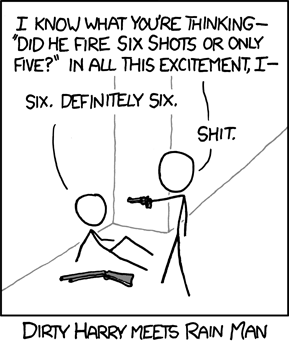Researchers have found ... that some humans are particularly alert to threats, particularly
primed to feel vulnerable and perceive danger. Those people are more likely to be conservatives.
One experiment used electrodes to measure the startle blink reflex, the way we flinch and blink when
startled by a possible danger. A flash of noise was unexpectedly broadcast into the research subjects’
earphones, and the response was measured.
The researchers ... found that those who had
a stronger blink reflex at the noise were more likely to take such conservative positions as favoring
gun rights, supporting warrantless searches, and opposing foreign aid.
Scholars also measured changes in the electrical conductance of research subjects’ skin, after they
were shown images meant to trigger disgust — like a person eating a mouthful of worms....
Liberals released only slightly more moisture in reaction to disgusting images than to photos of fruit.
But conservatives’ glands went into overdrive.
[There is] a remarkably strong correlation between state attitudes toward spanking children and voting
patterns. Essentially, spanking states go Republican, while those with more timeouts go Democratic.
Professors Hetherington and Weiler contend that the differences stem from profound differences in
cognitive styles. Spankers tend to see the world in stark, black-and-white terms, perceive the social
order as vulnerable or under attack, tend to make strong distinctions between “us” and “them,” and
emphasize order and muscular responses to threats. Parents favoring timeouts feel more comfortable with
ambiguities, sense less threat, embrace minority groups — and are less prone to disgust when they see
a man eating worms.
See Our Politics May Be All in Our Head by Nicholas D. Kristof, February 14, 2010.














